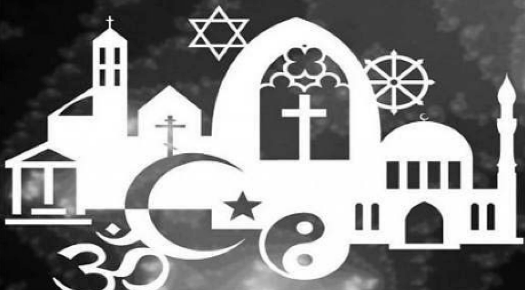
A series of recent studies, looking at different countries around the world, from South America to Scandinavia and from Vancouver to Seoul, all show the same thing – that religion is in decline and secularism is on the rise. The same has been reiterated by yet another report, which recently concluded that the world’s newest religion is No Religion.
Here are some of the findings of this report by National Geographic:
- For the first time in Norway’s history, atheists and agnostics have outnumbered those that believe in God.
- For the first time in Britain’s history, atheists and agnostics have outnumbered those that claim allegiance to any religion, with the rate of church attendance across the United Kingdom now suffering an all-time low, as less than two percent of all British population continues to attend church services on any given Sunday.
- Reportedly, nobody in Iceland believes that God created the Earth. Also, today, less than 50 percent Icelanders claim to be religious as opposed to 20 years ago, when 90 percent identified as religious.
- Roughly 70 percent of the Netherlands’ population does not claim religious affiliation, which is why as many as 700 Protestant churches and more than 1,000 Catholic churches are planning to shut down within the next couple of years.
- Apparently, 40 percent of all French, 34 percent of all Swedes, 27 percent of all Germans and Belgians, 26 percent of all Slovenians, 24 percent of all Danes and 19 percent of all Spaniards claim not to believe in any sort of God, supernatural being or life force.
- Across the United States, 23 percent to 28 percent adults associate with no religion. These so-called religious “nones” are not only growing in number but they are also becoming more and more secular in their personal beliefs and behaviours. Among millennials, Americans who are currently in their 20s, more than 35 percent claim to be nonreligious – this constitutes the largest group of secular individuals in the nation’s history.
- In Canada, the number of religious nones today clocks at 24 percent as opposed to 12 percent in 1991.
- In Australia, 22 percent people identify with no religion today as opposed to 15 percent in 2001.
- In New Zealand, 42 percent people claimed to be nonreligious in 2013 as opposed to 30 percent in 2001.
- While surveying South America, 7 percent people in Mexico, 8 percent in Brazil, 11 percent in Argentina, 12 percent in El Salvador, 16 percent in Chile, 18 percent in the Dominican Republic and 37 percent in Uruguay were found to be nonreligious – these constitute the highest figures ever reported in Latin American history.
- In Japan, roughly 70 percent adults claimed religiosity 60 years ago as opposed to 20 percent from today’s generation. In 1970, there were as many as 96,000 Buddhist temples across Japan but in 2007, the number dropped to 75,866 with roughly 20,000 temples having no resident priest. During the 1950s, more than 75 percent of all Japanese households had their own kamidana, Shinto altar, but by 2006, this number had dropped to 44 percent nationwide and 26 percent across major cities.
- In South Korea, while 11 percent people identified as atheists in 2005, an additional four percent claimed to identify as such today. Over the past 10 years, the number of religious South Koreans has dropped to 52 percent from 58 percent.
- More than 50 percent of all Chinese adults claim to be secular.
- In Africa, even though religiosity remains relatively high, there are certain pockets that are increasingly identifying as nonreligious – 5 percent in Ghana, 9 percent in Madagascar and Tanzania and 11 percent in Gabon and Swaziland.
- Roughly 20 percent of Botswana’s population says it follows no religion.
- More than 20 percent of all Jamaicans claim no religious affiliation.
- Several other countries comprise of significant populations that identify as nonreligious. This list includes names such as Israel, Slovenia, Hungary, Finland, Azerbaijan, Russia and Kazakhstan. Even though a country-by-country breakdown seems infeasible in this context, it should suffice to say that each of these countries has witnessed noticeable degrees of secularization over the past century.
- For the first time in the history of the world, there are now societies where being secular is more common than being religious. While openly supporting atheism may still be punishable in certain Muslim-majority nations, secularism seems to be on the rise across the Arab world. As a matter of fact, at least 13 Islamic countries continue to pronounce atheism as a crime warranting the death penalty.
- Finally, the total number of nonreligious people in the world clocked at over 1.1 billion in 2010 and the number is expected to exceed 1.2 billion by 2020.
Photo Credits: Youth Kiawaaz
